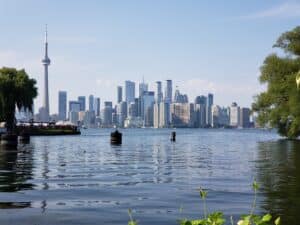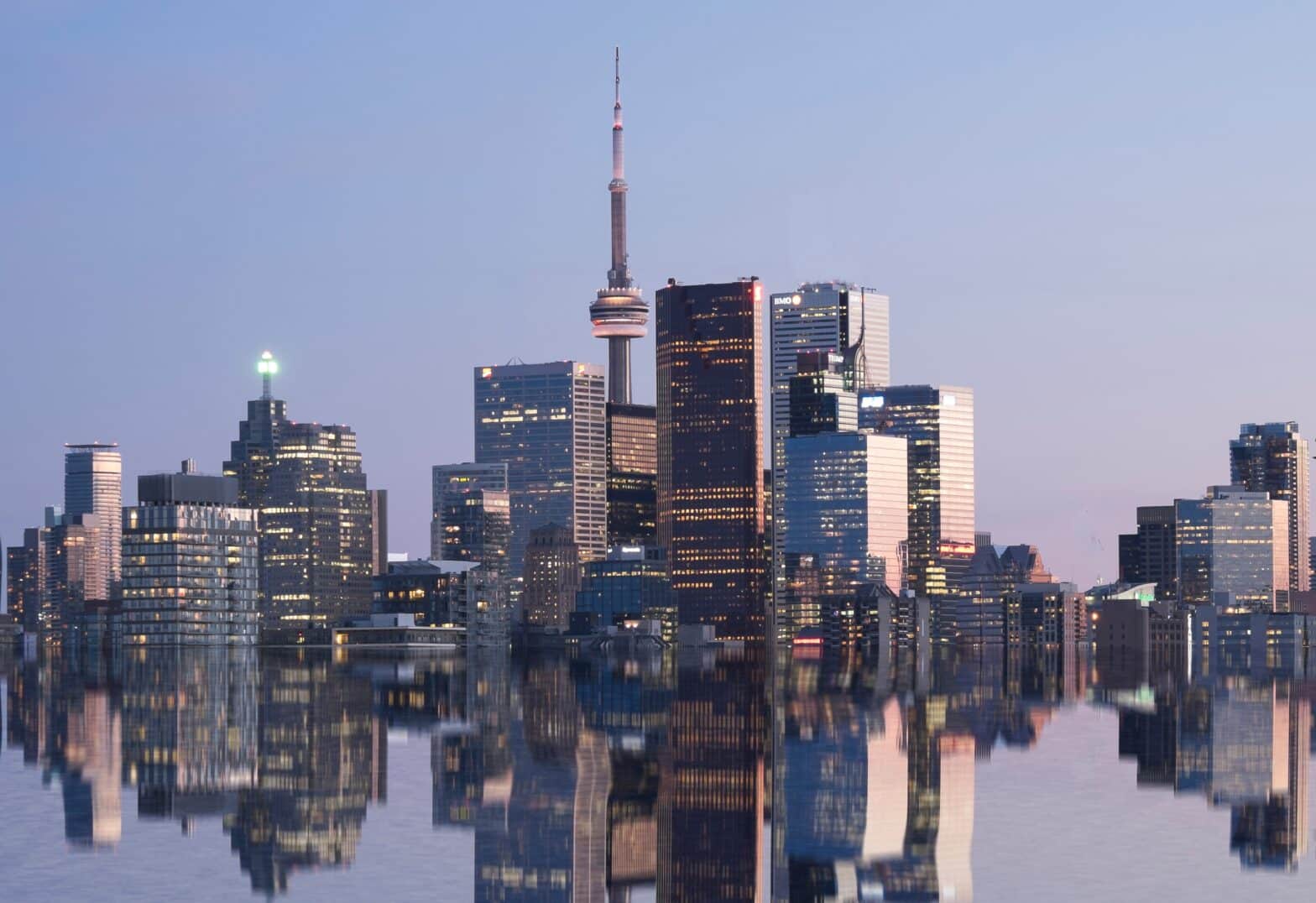A country of lakes, rivers, mountains, forests and touching three oceans; Canada has long been a popular destination among expatriates from around the world. Why the land of the Maple Leaf is so attractive to many is because it has plenty to offer: verdant nature, a multicultural society with a high quality of life, hospitality, economic vitality, low unemployment and an efficient health system… In short, Canada offers a welcome home away from home for families as well as for couples and lonely souls!
So, are you ready for your adventure in the Great North? Foyer Global Health offers some tips for a successful sojourn for expats in Canada!
Moving to Canada – some formalities
Visas, permits and residence
Most travelers will need to obtain a visa or an electronic travel authorization (ETA) to visit Canada.
If you intend to stay there for more than six months, you will need to obtain a residence permit.
The formalities for applying for a residence permit mainly depend on the reason for your stay (tourism, work, study, residence) and the duration of your stay (temporary residence, permanent residence). There are several programs and procedures for immigration applicants and several types of permits/visas issued by authorities at both the federal and provincial levels. You can apply before your departure or once you arrive in the country but to ensure a worry-free transition, best to apply before you enter the country.
Canada’s immigration policy is both quite strict as several conditions have to be met for those who wish to legally settle in Canada. ) On the other hand, Canada is a favourable venue for foreign labour due to its aging population, low birth rate and sector-specific labour shortages.
For more information on immigration/work/residence formalities, please refer to the Government of Canada website.
Finding accommodation
It is easier to look for accommodation once you arrive in Canada. Once there, you will be able to acquaint yourself with the different areas and districts of your designated city. You will have a first-hand opportunity to visit in person the apartments and houses you’re interested in to check the state of the accommodation, its location and the cost of utilities which may or may not be included in the rent.
There is a wide variety of accommodation for rent or sale in Canada, including villas, small houses, flats, cottages, duplexes, basements, townhouses, condos and lofts. But as in other countries, the major cities like Toronto, and Vancouver may pose some availability issues as well as higher sales and rental rates.
Big Canadian cities such as Toronto and Vancouver are by far the most expensive places to live in in the country. Montreal, Calgary, Ottawa or Sherbrooke are much more affordable. Rental leases are usually contracted for one year but monthly leases are also an option. The best time to find a place to rent is right before July 1st! The conditions and procedures for rentals vary from province to province. For example, in Quebec, the landlord is not legally required to demand a security deposit.. In general, you must ensure that you have a local telephone number and a Canadian bank account. At the same time, the landlord may ask for references and an employment contract, first and last months’ rent, , as well as bank guarantees.
Here are some useful websites to help you find accommodation:
https://www.kijiji.ca/
https://geo.craigslist.org/iso/ca
https://www.rentboard.ca/cities
Working in Canada
Most expatriates who choose Canada as a destination mainly do so for professional reasons, either because they want to boost their career profiles or because they want to try a new professional adventure on another continent. Canada offers no shortage of opportunities! The Canadian government has launched the ‘Global Talent Stream’ to hire immigrants equipped with specific skills to fill labour shortages.
The working culture in Canada:
- There are no ‘permanent’ or ‘fixed-term’ contracts: working conditions are established in a collective employment contract or according to provincial regulations.
- The notice period to terminate a work contract is short or, in some cases, non-existent.
- Generally, you are entitled to two weeks’ paid holiday per year after one year of service.
- Generally there is no long break during working hours: you start working early in the morning and finish working early in the afternoon, which respects work/life balance.
- Professionalism, punctuality, teamwork, and respect are valued attributes in Canada’s business environment.
- Canadian workplaces are quite casual compared to many other countries.
As a family, as a couple or on your own: why should you relocate to Canada?
Although the pandemic has slowed down immigration flows to Canada, the land of the caribou continues to occupy the top of the list of the best countries for expatriates.
So, what are the reasons behind this popularity?
- A good quality of life that is based on a high standard of living, work/life balance, importance of family life, health and well-being in a clean environment.
- Nature everywhere: from parks and lakes to oceans, from maple forests to sparkling glaciers, from polar bears to caribou, the country’s great diversity of flora and fauna attracts families and lovers of the great outdoors.
- A dynamic job market with immigration policies favourable to foreign workers.
- Safety: low crime and delinquency rates
- An accessible and efficient Canadian healthcare system
- A highly regarded education system from primary school through university. Public education programs vary from province to province.
- Optimal conditions for family life including parental leave and outdoor activities.
- Multiculturalism is an integral part of the Canadian identity: Canada is the land of opportunity for many expatriates and a home to many cultural communities that co-exist in the country’s ten provinces and three territories.
Where do expatriates prefer to live in Canada?
From British Columbia through Québec to Newfoundland, Canada is home to ten provinces and three territories where English and French are the two official languages. Each province, each territory has its own identity. So, which Canadian cities are the most popular with expatriates?
Montreal
The Quebecoise metropolis is a favourite destination among francophones from all over the world, whether they are French, Belgian, or Swiss. And for a good reason: unlike the other provinces, francophones are in the majority in Quebec. But the main strength of Montreal, the most European of Canadian cities, is its vibrant cultural mix, its exceptional quality of life and the numerous work and educational opportunities it offers.


Toronto
Canada’s business and financial capital, Toronto, attracts expatriates from all over the world. It is home to more than 230 nationalities. Ontario’s main city feels in many ways like New York, and is a national hub for Canadian English-speaking cultural life. The quality of life is good, inhabitants feel safe, and the job market is very dynamic! Moreover, there is no shortage of cultural activities and outdoor sports in Canada’s largest city!
Vancouver
One of the world’s greenest cities is popular with expatriates for its multiplicity of cultures, its economic dynamism and quality of life, specifically the quality of the natural environment, education, health and culture. What is there for you? British Columbia offers breathtaking natural beauty with the ocean on the horizon, a vibrant arts and culinary scene and a plethora of career opportunities. Plus, Vancouver’s winters are milder than in the rest of the country!

Some specific Canadian characteristics
- Canada has two official languages: English and French
- Although Canadian winters are very cold (-40 degrees Celsius with the windchill), Canadians are very warm and welcoming – this is not a myth!
- Canada is a multicultural country that was built through immigration
- Work/life balance really matters (especially for families): Canadians, in general, start and finish work early, which favours family life
